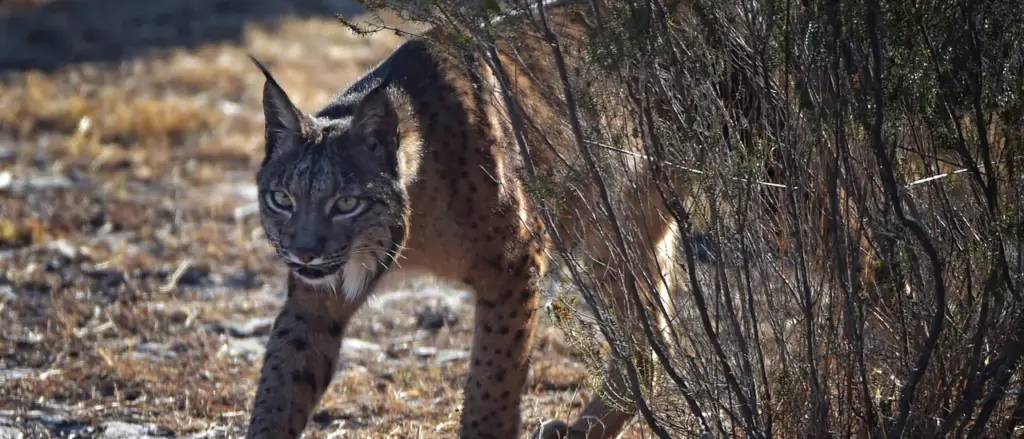
An all-white Iberian lynx has been spotted in Jaén, Spain, marking the first documented sighting of this rare wildcat. The event has sparked celebrations among conservationists, highlighting the success of efforts to revive the Iberian lynx population, which once faced the threat of extinction. The striking footage was captured by wildlife photographer Angel Hidalgo, showcasing the lynx’s unusual white coat alongside its characteristic features, including the distinctive face and sharp eyes.
The sighting took place in the mountainous areas surrounding Jaén, although specific details about the location have been withheld by officials to protect the rare animal. This decision underscores the ongoing conservation efforts aimed at safeguarding the Iberian lynx, which is already one of the world’s most endangered feline species.
Unprecedented Discovery and Genetic Insights
Hidalgo, who has dedicated years to capturing wildlife on camera, expressed his excitement about this unique encounter. “I’ve been setting up cameras for years, with many failed attempts and long hours of work. But this time, nature gave me something truly unique,” he remarked, according to NDTV.
Experts have confirmed that the lynx displays signs of leucism, a rare genetic condition that results in partial pigment loss, differentiating it from albinism. Unlike albino animals, which lack all coloration and often have visual impairments, leucistic animals retain normal pigment in their eyes and generally develop healthily.
Conservation Success Story
The Iberian lynx population has made a remarkable recovery in recent years, thanks to concerted conservation measures. Once critically endangered, the species has benefited from habitat protection and breeding programs. The sighting of this leucistic lynx adds an extraordinary chapter to the ongoing story of the Iberian lynx’s resurgence.
As news of the sighting spreads, conservationists hope that it will draw further attention to the plight of the Iberian lynx and the continued need for protective measures. The combination of its rarity and striking appearance has already captivated the public, reinforcing the importance of preserving such remarkable wildlife.
The discovery serves as a reminder of the delicate balance between nature and human activity, highlighting the ongoing efforts necessary to conserve species that are on the brink of extinction. As authorities continue to monitor the lynx’s habitat, the hope remains that this rare feline will thrive in the wild, embodying the success of modern conservation initiatives.







